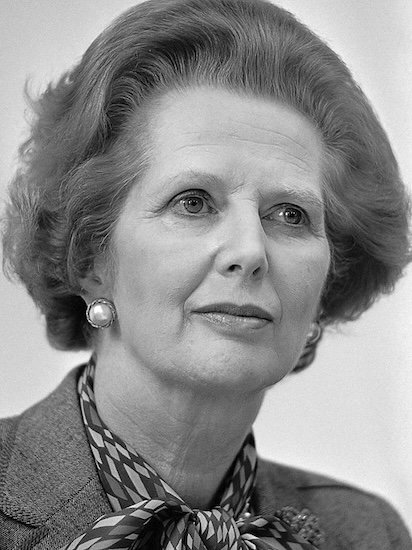Margaret Thatcher. 1983.Rob Bogaerts for Anefo. Nationaal Archief, CC0. https://commons.wikimedia.org/wiki/File:Margaret_Thatcher_(1983)_(cropped).jpg
Margaret Thatcher is remembered as one of Britain’s most iconic leaders and capitalism’s staunchest champions. She was a Conservative Party leader who held various offices throughout the 60s and 70s. She believed firmly in free trade and limited government, and proved to be a persuasive advocate for these policies, particularly as inflation rose to high levels in the late 70s.
On May 3, 1979, she became Britain's first female Prime Minister and held the office until 1990, longer than any other British PM of the 20th century. Thatcher was most famous for her economic policies, and vocal opposition to communism. While never lacking for critics and enemies, she also retained strong supporters, even beyond hardline conservatives. However, by the end of the 80s, Labour politicians in Britain were gaining steam, largely by criticizing the effects of Thatcher’s economic policies on middle and lower-class communities. This, coupled with her opposition to bringing Britain into the European monetary union, sparked opposition within her party, leading to her resignation in 1990.
Sources:
What is Thatcherism- BBC
The Margaret Thatcher I Knew- Guardian
Margaret Thatcher, First Female Prime Minister 1979- AP Archive





